We are developing the social individualist meta-context for the future. From the very serious to the extremely frivolous... lets see what is on the mind of the Samizdata people.
Samizdata, derived from Samizdat /n. - a system of clandestine publication of banned literature in the USSR [Russ.,= self-publishing house]
|
Getting my sleep patterns into sync with UK daylight is for me, now, a constant struggle, especially now, when there is very little in the way of daylight in my part of the globe, and especially when there are such good international cricket matches going on elsewhere in the world, together with, now, the means to follow them, ball by ball. The latest such disruption to my daily clock took the form of a terrific game between Australia and South Africa in Melbourne.
I found day three especially hard to ignore. At the beginning of it, South Africa looked odds on to lose the 1-0 advantage they had gained with their amazing fourth innings run chase in the first test at Perth. With only three first innings wickets left, they were looking at a massive first innings deficit, but they ended with their noses actually in front, an advantage they pressed home the next morning by taking three quick second innings wickets before the Aussies had even got their noses back in front. I was still checking the score on that third day at tea time, which was at about 4 a.m. my time. JP Duminy got a big first test century in only his second test, having also done well at the end of the Perth run chase, and fast bowler Dale Steyn, who also took ten wickets in the match, gave Duminy massive support with the bat.
In its way, this third day was a bit of cricket history, because it marked the moment of Australia’s definite, absolute, unarguable fall from grace as the definitely best international cricket team in the world. They recently lost to India in India, but that can happen to anyone. But then to go back home and immediately to lose to South Africa in Australia, well, that was something else again. → Continue reading: Australia without Warne
“Politics is all very well in its place, that place being very much on the periphery of life.”
– Tim Worstall, who has had an impressive year on his own blog, and seems to have quite marvellously upset one of the main figures of the Guardian’s columnists.
Excellent.

Gold Coast, Australia. January 2008.
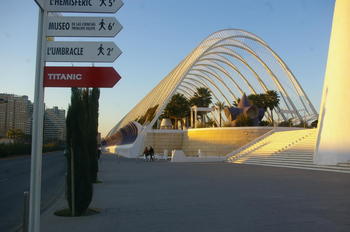
Valencia, Spain. January 2008.

Gdansk, Poland. February 2008.

Les Baux-de-Provence, France. March 2008.

Munich, Germany. April 2008.

Buenos Aires, Argentina. April 2008.

Colonia del Sacramento, Uruguay. May 2008.

Santiago de Chile. May 2008.
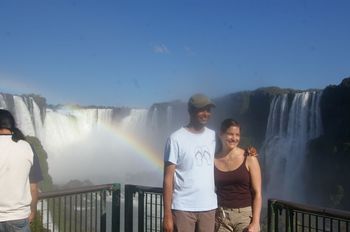
Cataratas do Iguaçu, Brazil, May 2008.
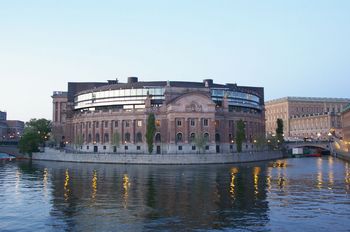
Stockholm, Sweden. May 2008.

Prora, Germany. June 2008.

Warsaw, Poland. June 2008.
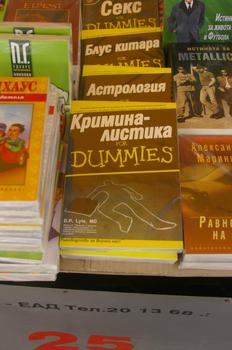
Sofia, Bulgaria. August 2008.

Ben Lawers, Scotland. September 2008.

Taipa, Macau. October 2008.

Yantian, China. October 2008.
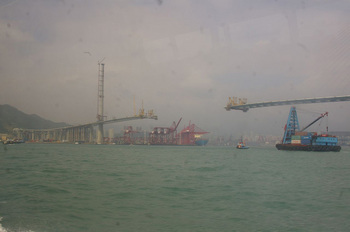
Hong Kong, October 2008.

Seville, Spain. November 2008.

Gibraltar. November 2008.
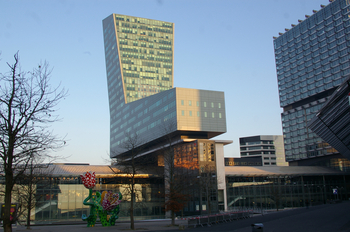
Lille, France. December 2008.
Another milestone is reached as channels of distribution change:
2008 will be seen as a landmark year in global communications in the textbooks of 2100 – it was the year that the internet finally surpassed what was once considered an unassailable bastion of main media, newspapers, as the leading source of national and international news in America. The Pew Research Center for the People & the Press is an independent opinion research group that studies attitudes toward the press, politics and public policy issues. This year, for the first time in a Pew survey, more people said they relied mostly on the internet for news than those that cited newspapers (35%). Television retained top spot with 70% but it’s now clear that it’s when, rather than if, the internet will become the key news communications medium.
This is not as radical as headlined, given that newspaper and television websites are important sources for online information. Yet the march online will intensify as the credit crunch accelerates change. Curiously, this could result in less news, as the institutions of mainstream reporting wither away.
Watch for the state to support and protect the coterie of reporters, newspapers and channels on the grounds that politicians are far too important not to be heard. After all, this is already done in the UK with the licence fee, public sector advertisements for the Guardian and various subsidies. As the market retreats, subsidies will become more overt, expensive and extensive.
There are many reasons for my decline in Samizdata productivity during the last year or two. The feeling that I had said a lot of what I had to say, and the feeling that, me having said it, the world seemed disinclined to listen very carefully to it are but two that spring to mind. And then there is the fact – no mere feeling – that professional journalists have become rather less snooty about blogging than they were (they could not have become any more snooty), and that some of them have now got quite good at it. Other bloggers who started out as amateurs have become professional journalists. All of the above makes difficulties for amateurs like me, sapping my will to blog, at any rate about ‘issues’.
But just lately, another very different distraction has entered my life. My mother is now a very old lady. And suddenly, it has become all too clear that she will, quite soon now, die. → Continue reading: Joining the terminal carer club
Dominic Lawson writes a good deal of sense about proposals to to use public funds in the UK and US to rescue various stricken car manufacturers, such as Jaguar and GM. Like Mr Lawson, I cannot quite see how the average UK voter, who can barely afford a Jaguar car, feels about handing over money to ensure that these cars stay in business, and certainly not if a prize political creep such as Peter Mandelson is involved. Do not misunderstand me: I love the brand, but would it not be better to let the firm shrink to the status of specialist niche product for those who are willing to pay for it?
Anyway, finances permitting, I am upgrading to buy myself and the missus an Alpha Romeo., assuming I can get one second-hand in great condition. Discounts for cars are likely to be pretty generous over the next few months.
Scientists are planning to ignite a tiny Man-made star, according to this Daily Telegraph article. I wonder if the scientists or the journalists writing on their activities have seen the film, Sunshine, about which reviews have been mixed?
Darwin gave us hope, not God. We have an inbuilt Pandora’s box that enables us to deceive not only others but ourselves. Deception is clearly linked to neural complexity and a positive perception of our environs is a deep-rooted drive. Without this, we cannot accomplish what we set out to do. Moreover, we have a tendency to deceive ourselves and deny the truth, since the alternative is depression and despair.
Evolutionary Psychiatrist Randolph Nesse of the University of Michigan is a great believer in hope as a evolutionary strategy.
According to Nesse, all emotions have an evolutionary basis, and for every negative emotion, there is a balancing positive one. Hope arrives on the coattails of despair, and without hope, we’d all be lost. Since everyone experiences bad stuff, and feels it deeply, our brains have adapted by also delivering hope. And without our inborn measure of hope, we fall into depression, where someone like psychiatrist Nesse has to remind us to be hopeful.
The rhetoric of hope adopted by Barack Obama and other politicians becomes more understandable as a strategy that draws upon deep seated biases within human societies. It is noteworthy that hope has formed a strong component of many religious messages: thus rendering the satirical embodiment of the Messiah in the President-elect more accurate in Darwinian terms.
Darwinian explanations add to the complex mix of our understanding of human action. They do not replace or simplify this complex cultural mosaic.
This small point does give us an insight into power: for those who truly love terror would deny hope to all. The true totalitarian states of the twentieth century tried to deny hope to all of their victims and even then, failed in their torture. Yet, the same horizons are also eroded and extinguished over the longer term by other systems, such as welfare. There is no comparison between the terror of the prison camps and the grey anomie of incapacity benefits. But both, I suspect, through different means, overturn this need for self-deception, acknowledging the primacy of politics and society over the weak orientation of our evolved psychology.
The UK Culture Gauleiter, Andy Burnham, gives an interview in the Telegraph today in which he says:
If you look back at the people who created the internet they talked very deliberately about creating a space that Governments couldn’t reach. I think we are having to revisit that stuff seriously now. It’s true across the board in terms of content, harmful content, and copyright. Libel is [also] an emerging issue.
Actually the people who ‘created’ the internet did it so that parts of the state could stay in touch after a nuclear attack… the idea the net does not need the government was an emergent realisation that came later. And of course there is nothing a government hates more that being thought irrelevent, which is what this is really about. Internet censorship is never ever about ‘protecting’ people, it is about extending and maintaining state power. That is the whole reason why advocates of censorship pretend child pornography is vastly more prevalent than it actually is. And you may be sure kiddie porn will be wheeled out yet again in this latest attempt to expand the power of the state.
There is content that should just not be available to be viewed. That is my view. Absolutely categorical. This is not a campaign against free speech, far from it; it is simply there is a wider public interest at stake when it involves harm to other people. We have got to get better at defining where the public interest lies and being clear about it.
Which of course is indeed a naked, direct and unambiguous attack on free speech.
He is planning to negotiate with Barack Obama’s incoming American administration to draw up new international rules for English language websites. The Cabinet minister describes the internet as “quite a dangerous place” and says he wants internet-service providers (ISPs) to offer parents “child-safe” web services.
Yes, no doubt Andy Burnham dreams of marching forward with The One across the internet in a sort of virtual Operation Barbarosa, presumably with UKGov in the roll of the Loyal Ally. But then unlike Barbarosa, this attack comes as no surprise to the ‘enemy’ (i.e. folks like us) and there is that pesky ‘First Amendment’ on the other side of the Atlantic sitting like 20,000 T-34 tanks waiting at Kursk. There is a reason Samizdata is hosted in the USA and not on this side of the puddle.
This crass power grab needs to be opposed on every level and not just attacked on the sheer technical difficulty of making it happen but also assaulted morally and politically.
But I agree when he says “If you look back at the people who created the internet they talked very deliberately about creating a space that Governments couldn’t reach. I think we are having to revisit that stuff seriously now.” Yes we do need to revisit that and remind everyone that if the history of the previous century teaches us anything, it is that governments cannot be trusted. Free speech cannot be left to the sufferance of political systems and venal politicians like Andrew Burnham. We need to smite any attempt to encroach on the internet at every level and distribute technical ‘solutions’ to every initiative the state comes up as widely as possible regardless of what laws they pass.
We simply will not cooperate.
Wired magazine has a neat item about ten species of creature that were discovered in 2008. Alas, as the comments in the article suggest, some people remain far more interested in the species varieties that have gone extinct this year. What perhaps needs to be stated is that in a constantly changing world, species are evolving and others are dying out, even without the allegedly malign influence of Man. What the deep Greens often do not seem ready to concede is that species have been wiped out before without the help of us naughty bipeds.
The innocent have nothing [left] to lose
– The answer to the question “What was the winning tagline in the government’s competition to relaunch the ID card?”, according to The Register’s perhaps slightly satirical Christmas quiz.
Christmas… I am gorged with all the bounty that western civilisation has to offer and rejoicing as I ponder the gifts bestowed by my friends. But I must say my favourite gift today was learning that Harold Pinter, a loathsome apologist for oh so many of the most vile mass murderers of modern times has finally dropped dead.
Good riddance and a pox on anyone who mourns his passing.
For me Christmas just got even merrier.
|
Who Are We? The Samizdata people are a bunch of sinister and heavily armed globalist illuminati who seek to infect the entire world with the values of personal liberty and several property. Amongst our many crimes is a sense of humour and the intermittent use of British spelling.
We are also a varied group made up of social individualists, classical liberals, whigs, libertarians, extropians, futurists, ‘Porcupines’, Karl Popper fetishists, recovering neo-conservatives, crazed Ayn Rand worshipers, over-caffeinated Virginia Postrel devotees, witty Frédéric Bastiat wannabes, cypherpunks, minarchists, kritarchists and wild-eyed anarcho-capitalists from Britain, North America, Australia and Europe.
|


















